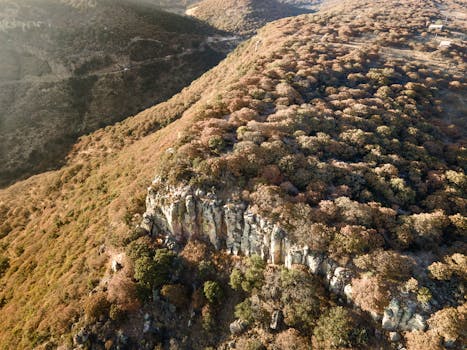
Introduction

The impact of climate change on global ecosystems is profound and far-reaching. As temperatures rise and weather patterns shift, the delicate balance of nature is disrupted, leading to significant consequences for biodiversity and ecosystem services.
Effects on Biodiversity

One of the most alarming impacts of climate change is the threat it poses to biodiversity. Species are struggling to adapt to rapidly changing environments. Many are facing extinction, particularly those that are already vulnerable due to habitat loss, pollution, and other human activities.
For example, coral reefs, often referred to as the “rainforests of the sea,” are experiencing widespread bleaching due to elevated sea temperatures. This not only affects marine life but also the livelihoods of millions of people who depend on these ecosystems for food and income.
Disruption of Ecosystem Services

Climate change also disrupts essential ecosystem services that humans rely on, such as pollination, water purification, and carbon storage. As species decline, the functions they perform within their ecosystems are compromised.
For instance, the decline of bee populations due to changing climates affects crop yields, threatening food security. Additionally, forests, which act as carbon sinks, are being compromised, leading to increased greenhouse gas emissions.
Impact on Specific Ecosystems

Different ecosystems are affected in various ways. In polar regions, melting ice caps threaten species such as polar bears and seals, leading to a cascade of ecological effects. Tropical rainforests, which are critical for carbon storage and biodiversity, are facing increased deforestation and droughts, exacerbating their vulnerability.
Wetlands, which serve as natural buffers against flooding and provide habitat for countless species, are also at risk. Rising sea levels and increased storm intensity can lead to the loss of these vital ecosystems.
Potential Solutions

Addressing the impact of climate change on ecosystems requires a multifaceted approach. Conservation efforts, such as protecting habitats and restoring degraded ecosystems, are crucial. Additionally, sustainable practices in agriculture, forestry, and fishing can help mitigate some of the negative impacts.
Furthermore, global cooperation and policy changes are essential for addressing climate change at its roots. Implementing renewable energy solutions and reducing carbon footprints can contribute to healthier ecosystems.
Conclusion

The impact of climate change on global ecosystems is a pressing issue that demands immediate attention. By understanding the interconnectedness of climate, biodiversity, and ecosystem services, we can work towards solutions that protect our planet’s natural heritage for future generations.



